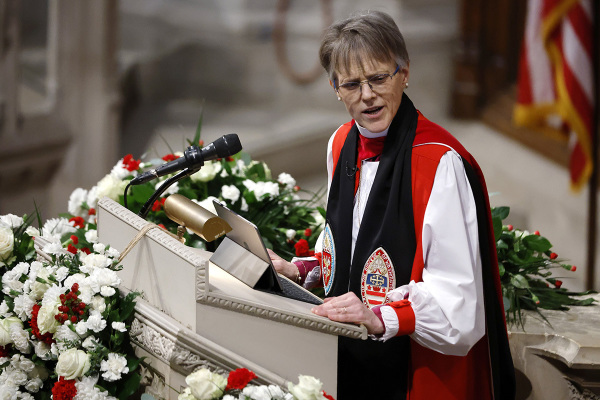Was the Apostle Paul a Misogynist?
In the modern world many people rather casually assume, or assert, that the Apostle Paul was a misogynist based upon his teachings concerning the differing roles of men and women in the church and in marriage in the early church.

What such critics fail to realize is that they are reading the Apostle Paul through the lens of a 21st century perspective, rather than the 1st century world to which Paul wrote originally.
In the first century A.D., women were considered their husband's property, not their partner, and they had very few rights or protections. In that first century context, the most revolutionary thing about Paul's teachings about marriage in Ephesians is that husbands were to love their wives sacrificially "just as Christ also loved the church and gave Himself up for her" and husbands were to nourish and cherish their wives as Christ "nourishes and cherishes" His church (Eph. 5:25, 29, NASB).
In the Apostle Paul's first letter to the Corinthian Christians he demonstrates the essential equality of husband and wife on the most intimate, conjugal level. He instructs the Corinthians that in marriage the husband and the wife have equal right to conjugal relations, declaring:
The husband must fulfill his duty to his wife, and likewise also the wife to the husband. The wife does not have authority over her own body, but the husband does; and likewise also the husband does not have authority over his own body, but the wife does. Stop depriving one another except by agreement for a time, so that you may devote yourselves to prayer, and come together again. . . .(I Cor. 7:3-5a, NASB).
The parallelism is exactly equal between the husband and the wife in the Corinthian passage even though it was written in a time and a culture where wives were considered the property of their husbands.
One can only imagine the shock and consternation among many of the husbands in Corinth and Ephesus upon hearing the Apostle's commands and admonitions. Can you not hear them exclaiming, "my body belongs to my wife sexually, you say? Has Paul taken leave of his senses?" Or alternatively, their exclamations echo across the room, "I'm to love my wife sacrificially, with a sacrificial agape love which always puts her needs before my own? I never heard of such a thing!"
Of course they had never heard that before. Such sexual equality between husband and wife had never been asserted before in any civilization before Paul, the spiritual revolutionary, enunciated it in the New Testament. The Apostle Paul was no misogynist.
So how do we explain the Apostle Paul so clearly teaching essential equality in Christ (Gal. 3: 28) between man and woman in the most intimate of relationships and yet then placing restrictions on Christian women's roles and behaviors in his epistles?
Why should women wear veils on their heads (I Cor. 11: 2-15)? Why should "women adorn themselves in modest apparel" and "not with braided hair, or gold or pearls, or costly array (I Tim. 2: 9)"? Why were Christian women to "learn in silence" (I Tim. 2: 11; cf I Cor. 14: 34)?
The answers are to be found in the societal context within which the Apostle Paul ministered in the first century A.D.
It must be remembered that in the first century Jewish world women were "forbidden to learn the law" and "had no part in the synagogue service" being "shut apart in a section of the synagogue, or in a gallery where they could not be seen." (William Barclay, The Letters of Timothy, Titus, and Philemon, Westminster, 1975, p. 66). Yet, the Apostle Paul commands (an imperative) that women "learn" (literally "receive instruction") in the church (I Tim. 2: 11).
First century Greek society was not more liberated than the world of first century Judaism. William Barclay describes the status of women in the first century Greek world:
The respectable Greek woman led a very confined life. She lived in her own quarters into which no one but her husband came. She did not even appear at meals. She never at any time appeared on the street alone; she never went to any public assembly. (The Letters of Timothy, Titus, and Philemon, p. 67).
As the great 20th century Evangelical preacher H.A. Ironside put it:
Loose women in those days went bareheaded, and were found in the streets unblushingly seeking those who might be companions with them in their sin and wickedness. Women who sought to live in chastity and purity were very particular never to appear in public unveiled. The unveiled woman was the careless woman, the immoral woman; the veiled woman was the careful wife or mother who was concerned about her character and her reputation. (H.A. Ironside, Addresses on the First Epistle to the Corinthians, Loizeaux Bro., Neptune, N.J., p. 326).
It must also be remembered that women often played a debased role in Greek religion.
The Temple of Aphrodite in Corinth had a thousand priestesses who were sacred prostitutes and every evening plied their trade on the city streets. The Temple of Diana in Ephesus had its hundreds of priestesses called the Melissae, which means the bees, whose function was the same. (Barclay, The Letters to Timothy, Titus, and Philemon, p. 67).
Clearly in such a context if "Christian women had taken an active and a speaking part in its work, the Church would inevitably have gained the reputation of being the resort of loose women." (Barclay, p. 67).
However, it should be noted that from the ancient world's perspective – Jewish, Greek, or Roman – women played an unprecedentedly prominent role in the history of the early church from the Virgin Mary, the mother of Jesus, onward through the Gospels and the Epistles. Paul's fellow Apostle Peter commands husbands to give "honor" to their wives "as being heirs together of the grace of life." (I Pet. 3: 7).
In actual fact, everywhere New Testament Christianity has gone, the lot of women in society has improved radically.
Viewed from the perspective of the dominant and prevailing cultural attitudes toward women in the first century Jewish and Greco-Roman world New Testament Christianity was perhaps the greatest pro-feminist movement in history until well into the 20th century.






























